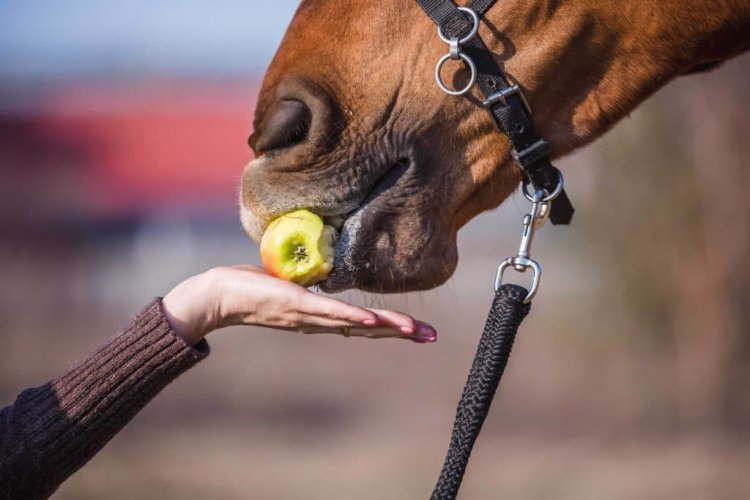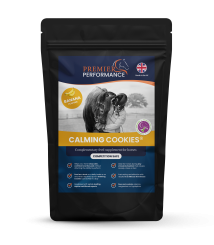in basket
TOP OFFER - SUMMER20 - 20% OFF and 4 FREE seasonal products!
Does your horse have a favourite flavour?

We all know that our horses like carrots and that mint is frequently added to commercial feeds, but who would have thought that horses prefer fenugreek and banana to carrot and mint. Research studies have shown that horses prefer fenugreek, banana, mint, cherry, garlic, apple and carrot to other flavours such as cinnamon, vanilla and citrus. Indeed, a number of studies have shown fenugreek to be the most preferred flavour by horses.
Fenugreek is an herb that’s native to the Mediterranean region, southern Europe and western Asia. It’s a common ingredient in Indian dishes and has been used as a spice to improve the sensory quality of foods by increasing the flavour and colour, and by modifying the texture of the food. Fenugreek has a slightly sweet and nutty taste. It is also known for its medicinal qualities and has a been used for thousands of years in alternative medicine.
Fenugreek can also be used to encourage eating in horses with a poor appetite. Flavours are also a good way of ensuring that horses eat their supplements and that’s why certain flavours are added to horse feeds/supplements. Banana comes a close second to fenugreek in flavour preference in horses. Whilst fenugreek and banana may not be flavours that you would immediately think of as a preferred taste for horses, different cultures and historical records report fenugreek commonly fed to horses by the Greeks and Romans, and bananas to be routinely fed to horses in India. In fact, when horses were used in agriculture in the UK, fenugreek and also cumin were commonly used to encourage fussy eaters to eat.
Flavours can also be used to mask the taste of medicines and to encourage horses to take certain medicines. For example, flavour can be used to encourage a horse to accept a deworming syringe by filling an empty syringe with apple sauce (it is better to use sugar-free if possible). Getting them used to enjoying the odd syringe of sweet apple sauce can often mean that future deworming is a less traumatic experience for your horse, and you!
Flavours can also be used to increase intake in horses with a loss of appetite. However, if your horse goes off their food, then the first port of call is to rule out any medical cause, for example issues with their teeth. If horses are hungry, and any medical cause has been ruled out, they should eat what is offered to them as they have evolved to take every opportunity to eat extra calories in preparation for times when food may not be as readily available. However, domesticated horses do live a very different lifestyle to that of their wild counterparts and some have become well accustomed to eating sweet feeds, making it difficult to get them to eat high fibre feeds that are unmolassed.
We know from research that horses fed a lot of sweet tasting feeds can come to expect an intense sweet flavour and the best way to overcome this is to replace the sweet feed very gradually with the new feedstuff. It is important to persevere as it may take a few weeks before the horse becomes accustomed to the new feed, but its survival instinct for feed intake will kick in and override the desire to eat something sweeter. Another means of overcoming picky eating is to turn the horse out to pasture and remove all supplementary feeds (where possible), although this should be done at an appropriate time and not at a time when the horse needs to be in peak condition, or the pasture is of poor nutritional quality.
Illness can have a profound effect on appetite, which can be incredibly difficult to manage and hugely important for recovery. We can also use flavours to encourage sick horses to eat; for example, some work has been done in horses with chronic grass sickness, where a decrease in appetite is commonly seen, using different flavours to increase feed intake. Similarly, many horses following colic surgery also have markedly depressed appetite, with some equine hospitals seeing clear benefits in some of their patients when they added certain flavours, including ginger! However, more research is needed to establish clear evidence and guidelines for the use of flavours for different medical or post-surgical management.
Article written for Premier Performance by Professor Jo-Anne Murray.










